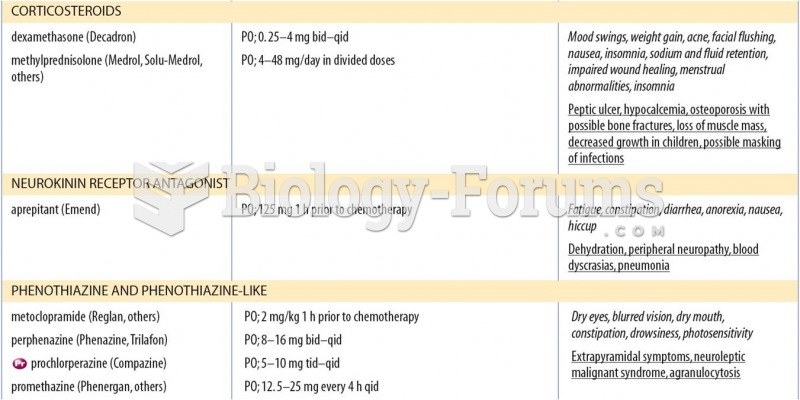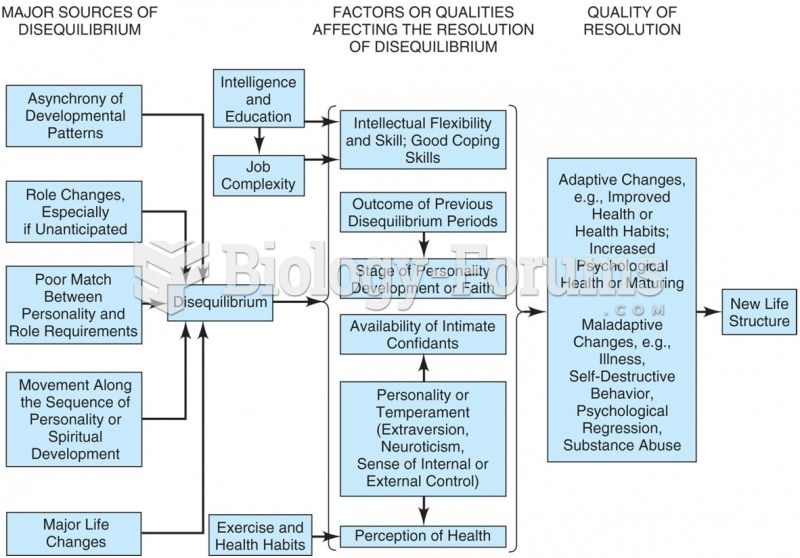Answer to Question 1
Correct Answer: 3
Rationale 1: The second-generation cephalosporins do not cross the bloodbrain barrier in concentrations high enough to treat CNS infections.
Rationale 2: The third-generation cephalosporins can cross the bloodbrain barrier but another generation is more capable of treating resistant organisms.
Rationale 3: The fourth-generation cephalosporins are capable of crossing the bloodbrain barrier in sufficiently high concentrations to treat central nervous system infections such as meningitis. They also are more effective against organisms that have developed resistance to earlier cephalosporins.
Rationale 4: The first-generation cephalosporins do not cross the bloodbrain barrier in concentrations high enough to treat CNS infections.
Global Rationale: First- and second-generation drugs do not cross the bloodbrain barrier to any appreciable extent. Third-generation drugs are able to enter the CSF to treat CNS infections, but fourth generation cephalosporins are more effective against organisms that have developed resistance to earlier cephalosporins.
Answer to Question 2
Correct Answer: 4
Rationale 1: First-generation cephalosporins are more effective against another type of organism.
Rationale 2: First-generation cephalosporins are more effective against another type of organism.
Rationale 3: First-generation cephalosporins are more effective against another type of organism.
Rationale 4: First-generation cephalosporins are the most effective cephalosporins against gram-positive bacteria.
Global Rationale: First-generation cephalosporins contain a beta-lactam ring; bacteria that produce beta lactamase are usually resistant to these drugs. They are the most effective cephalosporins against gram-positive bacteria, including staphylococci and streptococci and are sometimes the preferred drugs for these organisms. First-generation cephalosporins have only moderate activity against gram-negative bacteria.







